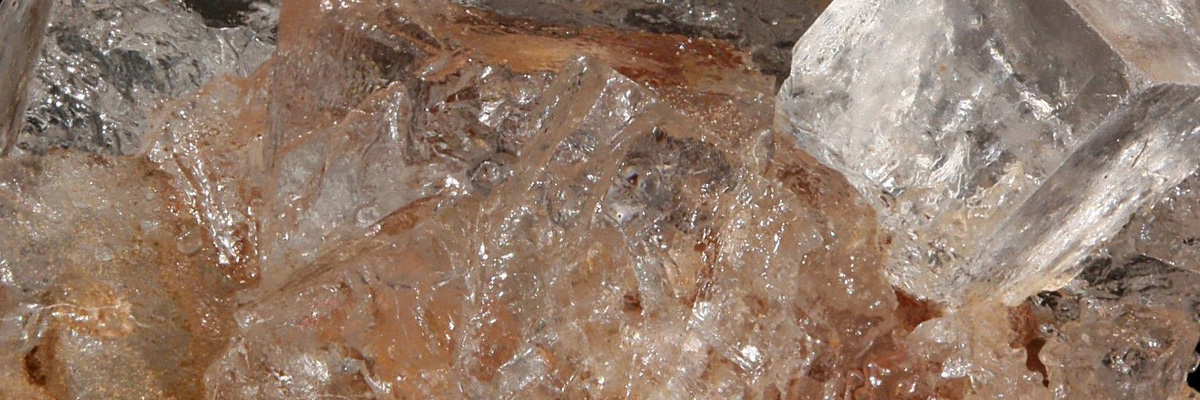Sylvite is a potassium chloride mineral belonging to the halide class of minerals. It is characterized by its cubic or granular crystal structure and its colorless, white, or pale shades of yellow, red, or blue. Sylvite exhibits a vitreous luster, is relatively soft, and is soluble in water, making it a distinguishing feature among other minerals.
Usage
Sylvite is an essential source of potassium, primarily used in the production of fertilizers. Potassium is a vital nutrient for plant growth, contributing to increased crop yield, resistance to diseases, and overall plant health. Sylvite is also used in various industrial applications, including the production of potassium hydroxide, which is used in the manufacturing of detergents, soaps, and other chemicals.
Gemstone
Sylvite is not considered a gemstone due to its softness and solubility in water, which make it unsuitable for use in jewelry.
Origin
Sylvite forms through the evaporation of saline waters in arid environments, such as salt lakes and salt pans. The mineral can also be found in sedimentary rocks, particularly those formed in evaporite deposits. Sylvite can be discovered in the cavities of volcanic rocks, where it is deposited from potassium-rich solutions.
Occurrence
Sylvite is primarily found in evaporite deposits and sedimentary rocks, where it often coexists with other evaporite minerals like halite. Some of the most significant deposits of sylvite are found in Canada, Russia, Germany, and the United States, particularly in the Great Salt Lake region of Utah and the Permian Basin in Texas and New Mexico.
Metaphysical
Sylvite is not commonly associated with metaphysical or spiritual practices, likely due to its softness and solubility in water, which limit its practical applications in these areas.
| Class | Halides |
| Formula | KCl |
| Luster | Vitreous |
| Hardness (Mohs) | 2-2.5 |
| Streak | White |
| Color | Colorless, white, pale shades of yellow, red, or blue |
| Cleavage | Perfect in three directions, forming cubes |
| Specific Gravity | 1.99 |


